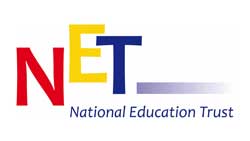
At Talk The Talk, we are proud of the impact our workshops have on young people and we understand the importance of accurate evaluations, that is why we produce impact reports that reveal the latest data as well as evaluations of our workshop programmes from education professionals.
We are delighted to launch our 2024-25 Impact Report, which covers our impact and engagement in the 2024-25 academic year. Inside you can find out more about our approach to oracy training, feedback from schools and young people and a full overview of all our workshop programmes.
We’re really pleased to announce our Impact and Engagement figures for the 2023-24 academic year! We engaged more young people than ever before, supporting them to become confident communicators for life. Click to download and find out more…
We invite you to explore our 2022-23 Impact Report. Inside you’ll find an overview of our approach to oracy, how we work with young people and of course the engagement and impact we have had in 2022-23.
A comprehensive evaluation of our student oracy programmes conducted in 2018 by John MacBeath, Professor Emeritus at the University of Cambridge.
There was a consistent trend in improved confidence ratings from all participants.
Professor John MacBeath, Cambridge University, carried out this evaluation which was commissioned to measure the impact of the Talk The Talk programme in helping young people to:
Richard Howard, National Education Trust, carried out this evaluation which was commissioned to ascertain whether the Talk The Talk programme has successfully helped to give students, and teachers, a better understanding and ability in speaking up and communicating with confidence.

